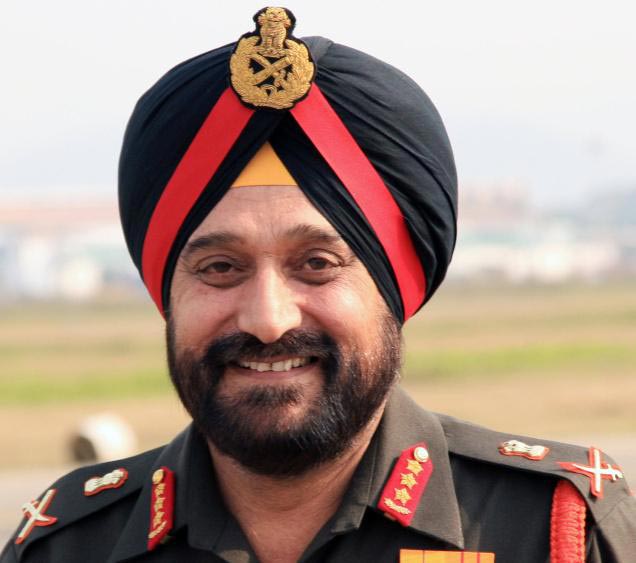 New Delhi:
New Delhi: When Lt Gen Bikram Singh takes over as India's 27th army chief on May 31, he will be the first ever to be elevated to the force's top job under such negativity and potentially incendiary conditions, which could embarrassingly unravel, as they at times tend to, during his tenure.
All previous army - indeed, service chiefs - had taken charge amidst great goodwill and amity.
And though in some recent instances much of this had dissipated early on in their tenures, the atmospherics in the run-up to their assumption of office had mostly been controversy- and discord-free.
The sanctity of the office of army chief - much talked about these days - as well as those of the air force and navy chiefs had largely remained inviolate.
But, sadly, the minefield of adverse circumstances and downright pessimism ahead of Gen Singh's imminent elevation, regardless of his seniority and soldierly competence, has all the hallmarks of diminishing this highly regarded military office.
For Gen Bikram Singh not only inherits a poisoned chalice with regard to deteriorating relations between army headquarters and the ministry of defence, exacerbated further by a series of sensational media reports, but, unlike his predecessors, faces awkwardly provocative legal challenges ahead of becoming army chief that could embarrass him later.
He is a defendant in an alleged fake encounter (staged shootout) case in the Jammu and Kashmir High Court dating back to 2001 which in all likelihood could be decided some time during his tenure as army chief.
Alongside, he figures prominently in the army's unresolved Court of Inquiry (CoI) over charges of rape and sexual harassment by some 60 Indian soldiers in 2008 when he was deputy force commander of the United Nations Mission in the Democratic Republic of Congo.
The former, more daunting case pertains to the army chief designate's involvement as Rashtriya Rifles Brigade Commander in an encounter in Janglat Mandi in southern Kashmir's Anantnag district 11 years ago in which Muhamad Abdullah Bhat, 60, a reported Lashkar-e-Taiba (LeT) cadre was one of two terrorists shot and killed.
The petition filed last year by Bhat's mother Zaituna and sister Jana, claims that Abdullah was an itinerant labourer and not an LeT militant as declared by the army. Both claimed he was killed in a staged shootout.
Defence lawyers, however, maintain the genuineness of the encounter, a claim endorsed by the local police on grounds that Brig Singh was injured - and later decorated for gallantry - in the firefight in which a lt colonel and an army jawan too died.
The case is at an incipient stage, but given the complexities of such petitions and going by past instances in Kashmir it has latent possibilities to embarrass Gen Singh as it progresses.
Most legal experts are agreed that such litigation remains 'hazardous' with the real possibility, in the event of an adverse verdict, of deracinating not only Gen Singh but also Prime Minister Manmohan Singh's battered government.
As for the CoI in the Congo case conducted in Meerut some years ago under a three-star officer it can safely be assumed that Singh will in all likelihood be absolved of any wrongdoing as it is an internal army matter.
Under army procedures a CoI can lead to court martial proceedings provided there is evidence beyond reasonable doubt of any wrong doing.
Predictably, few armies in the world would dare summon a court marital aginst their own chief as that is what Gen Singh will be after May 31.
But these two instances are not the only ones where the overpowering woes of Gen Singh -currently being briefed on a tri-weekly basis in Delhi ahead of becoming army chief - end.
The besieged general has also to run the public opinion gauntlet of a public interest litigation petition filed recently in the Supreme Court by a former naval chief, retired senior civil servants and journalists, questioning his politically and personally motivated appointment.
And though the odds on its admittance even by the litigants themselves are low, it merely reinforces the hubbub Gen Singh's appointment has raised and how it impinges negatively on the office of army chief.
"The army chief's office is an exalted office. All of us have an obligation to do nothing that lowers its dignity" Prime Minister Manmohan Singh said earlier this month in response to an alarming newspaper report claming an aggressive 'show of force' by a disgruntled Gen V.K. Singh, a euphemism for a putative coup.
Senior army officers privately claimed that despite being aware of these legal pitfalls the government had knowingly picked Lt. Gen Bikram Singh to be army chief, announcing his nomination three - and not the mandatory two - months ahead of the incumbent commander's retirement.
Some even cynically suggested that this could ultimately lead to more 'cover-ups, deal making and all-round skullduggery' to neutralise the outstanding legal and related intra-services issues Gen Singh faces.
"The government could easily have left these ticking time bombs alone or defused them before moving to make Gen Singh the chief," said a former three-star officer declining to be named. The army can certainly do without more adverse publicity, he plaintively added.
 New Delhi: When Lt Gen Bikram Singh takes over as India's 27th army chief on May 31, he will be the first ever to be elevated to the force's top job under such negativity and potentially incendiary conditions, which could embarrassingly unravel, as they at times tend to, during his tenure.
New Delhi: When Lt Gen Bikram Singh takes over as India's 27th army chief on May 31, he will be the first ever to be elevated to the force's top job under such negativity and potentially incendiary conditions, which could embarrassingly unravel, as they at times tend to, during his tenure.